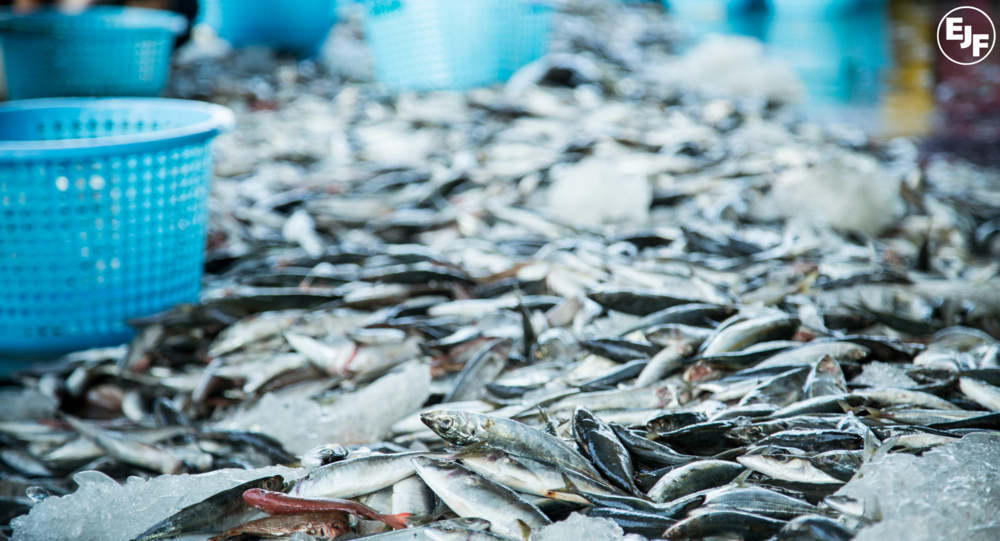
EU to ban fish imports from Sri Lanka for illegal fishing
Brussels: Today, the Environmental Justice Foundation (EJF), Oceana, The Pew Charitable Trusts, and WWF welcome a decision by the European Union fisheries ministers to sanction Sri Lanka for its failure to combat Illegal, Unreported, and Unregulated (IUU) fishing.
Leading NGOs are encouraging Sri Lanka to improve its performance.
After months of discussion, ministers have decided to ‘red-card’ Sri Lanka by putting in place trade restrictions for failing to properly monitor its fishing fleet, punish vessels guilty of illegal fishing, or develop robust fisheries laws to deter IUU fishing. The decision to red card Sri Lanka means EU member states’ fishing vessels cannot now operate in Sri Lankan waters.
“This decision reiterates that EU fisheries ministers are serious about confronting illegal fishing globally. We encourage Sri Lanka to put the measures in place to dissuade IUU fishing by their vessels, or by vessels landing in their ports,” said Tony Long of The Pew Charitable Trusts. “Our Coalition is ready to support the government of Sri Lanka in combating IUU fishing, especially towards implementing stronger measures in their ports and tracking its fleet,” he continued.
Sri Lanka was initially among eight states ‘yellow carded’ by the European Commission in November 2012. Five of these were de-listed in 2014 due to their efforts in combating IUU fishing. Now, only three states remain on the red list and will do so until their governments take resolute action.
“Karmenu Vella is to be commended for the Commission’s proposal of this measure. We are calling on him to not only maintain these efforts but to increase enforcement of this pioneering legislation across the EU,” said Andreas Baumüller from WWF. “We also recognise that Sri Lanka has recently increased efforts to combat IUU fishing and we welcome opportunities to work with the government and local stakeholders to achieve the needed improvements,” he concluded.
Notes to editors
- Sri Lanka is the second biggest exporter of fresh and chilled swordfish and tuna to the EU (€74 million of imports in 2013). The Commission states that it cannot tolerate not knowing whether the fish imported into the EU was caught sustainably or not. EU citizens have the right to know what lands on their plate.(1)
- IUU fishing depletes fish stocks, damages marine ecosystems, puts legitimate fishers at an unfair disadvantage, and jeopardises the livelihoods of some of the world’s most vulnerable communities. IUU fishing is estimated to cost between €8 billion and €19 billion annually, representing 11 million to 26 million tonnes of catch.
- The EU’s IUU regulation, which came into (2) force in 2010, aims to keep illegally caught fish out of the EU by requiring “catch certificates” for seafood imports and exports. The law also bars the import of fish from states and vessels known to be involved in IUU fishing. The regulation and the EU’s enforcement of it are unique.
- Since 2012, the EU has warned (yellow carded) 17 states. In March 2014, the EU went on to ban, ‘red card’ imports from Belize, Cambodia, and Guinea, although in December the Council removed the sanctions on Belize due to its moves to combat IUU fishing. To date, 9 countries remain yellow carded: Ghana, Curaçao, South Korea, PNG, Philippines, St. Vincent and the Grenadines, Tuvalu, St. Kitts and Nevis and Solomon Islands.
- In October 2014 the European Commission removed yellow cards from Fiji, Panama, Togo and Vanuatu following improvements in their measures to tackle IUU fishing.
- The main purpose of the FAO Port State Measures Agreement (PSMA) is to prevent, deter and eliminate IUU fishing through the implementation of robust port state measures. Sri Lanka ratified the PSMA in 2011.(3)
(1) http://europa.eu/rapid/press-release_STATEMENT-14-314_en.htm
(2) http://ec.europa.eu/fisheries/cfp/illegal_fishing/index_en.htm
(3) http://www.fao.org/fileadmin/user_upload/legal/docs/6_037s-e.pdf
SIGN UP FOR OUR EMAILS AND STAY UP TO DATE WITH EJF